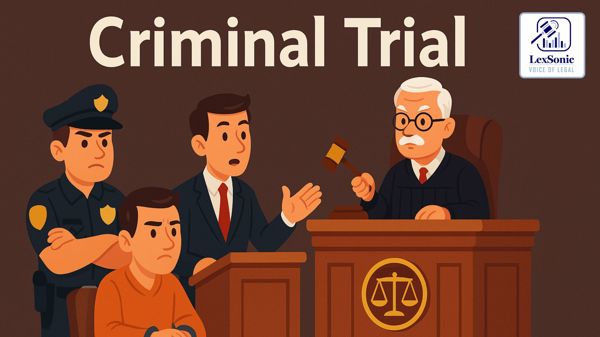Justice at the Crossroads: The High Stakes of Charge Alteration in a Decade-Long Trial.
27 February 2024
Criminal Trial >> Criminal Law | Forgery >> Criminal Law
The case involves a writ petition challenging an order dated 17.02.2023 passed by the Special Court for CBI, Greater Bombay, which framed an additional charge under Section 467 read with Section 120-B of the IPC in relation to a case of forgery and conspiracy. The petitioners, facing trial since 2013, argue that the late framing of the additional charge, after the examination of 11 witnesses, prejudices their defense and violates the principles laid out in previous Supreme Court decisions.
Key Legal Issues:
Section 216 of Cr.P.C.: This section empowers courts to alter or add charges at any time before pronouncing the judgment. The Supreme Court, in various decisions, has emphasized that this power is exclusive to the court, and no party (including the prosecution or accused) has a right to seek such alteration. The court can modify or add charges on its own initiative if it identifies an omission or a need to address a defect in the charge during the trial.

Court’s Power to Alter Charges: The Supreme Court in P. Kartikalakshmi v. Sri Ganesh (2017) observed that it is within the trial court's discretion to alter or add charges based on its independent evaluation of evidence and material presented during the trial. The court can take such action even after the trial has commenced, provided that the change is linked to the evidence and does not cause undue prejudice to the accused.
Material Link with Evidence: In Dr. Nallapareddy Sridhar Reddy v. State of Andhra Pradesh (2020), the Supreme Court explained that the alteration or addition of charges must be based on evidence recorded during the trial. The court must establish that there is a direct link between the new charge and the evidence already presented, ensuring that the charge is relevant and justifiable under the circumstances of the case.
Trial Court’s Decision:
The trial court invoked Section 216 of the Cr.P.C. to frame an additional charge under Section 467 of the IPC for aggravated forgery, specifically related to the forgery of a valuable security (Letter of Credit), which had not been included in the original charge. The trial court determined that although the initial charge covered the basic ingredients of forgery and criminal conspiracy, the specific charge of forgery of a valuable security was inadvertently omitted. The court ruled that this omission could be rectified without causing prejudice to the accused, as the facts and evidence already available in the trial supported the framing of the additional charge. The court further held that the accused had the option to recall witnesses if necessary under Section 217 of the Cr.P.C.
Petitioner's Arguments:
Prejudice and Delay: The petitioners argue that framing the additional charge at this late stage (after the examination of 11 witnesses and nearing the conclusion of the trial) would prejudice their defense. They also contend that the trial has been unduly prolonged, causing harm to their right to a speedy trial.
Improper Invocation of Section 216: The petitioners rely on P. Kartikalakshmi to argue that Section 216 should not have been invoked on a motion by the prosecution, as the court should exercise its powers of its own accord. Additionally, they contend that the trial court did not follow the correct procedure outlined in the Supreme Court's decisions regarding the addition or alteration of charges.
Court's Analysis:
Exclusive Power of the Court: The court observed that the trial court had acted within its powers under Section 216, as it was within the court’s discretion to alter the charge based on the evidence before it, and there was no legal bar to such an action even at the final stages of the trial. The trial court’s decision to treat the prosecution’s application as a notification of a defect in the charge, which the court then corrected on its own, was deemed proper.
Material Link and Fair Trial: The court noted that the trial court had evaluated the evidence and determined that there was a sufficient link between the evidence and the new charge. The change in the charge was deemed necessary for ensuring justice, as it correctly aligned with the factual matrix established during the trial.
No Prejudice to the Accused: The trial court considered the possibility of prejudice to the accused due to the new charge but concluded that the additional charge was not likely to cause undue harm, as the evidence supporting the forgery was already part of the trial record.
Conclusion:
The trial court’s decision to frame the additional charge under Section 467 of the IPC is upheld. The court found no merit in the petitioners' arguments regarding prejudice or improper procedure. The trial court's action was consistent with its powers under Section 216 of the Cr.P.C., and it applied the appropriate legal tests as laid down by the Supreme Court. The petition is therefore dismissed, and the trial is to proceed with the additional charge in place.
Section 216., Code of Criminal Procedure - 1973
Section 217., Code of Criminal Procedure - 1973
Code of Criminal Procedure, 1973
